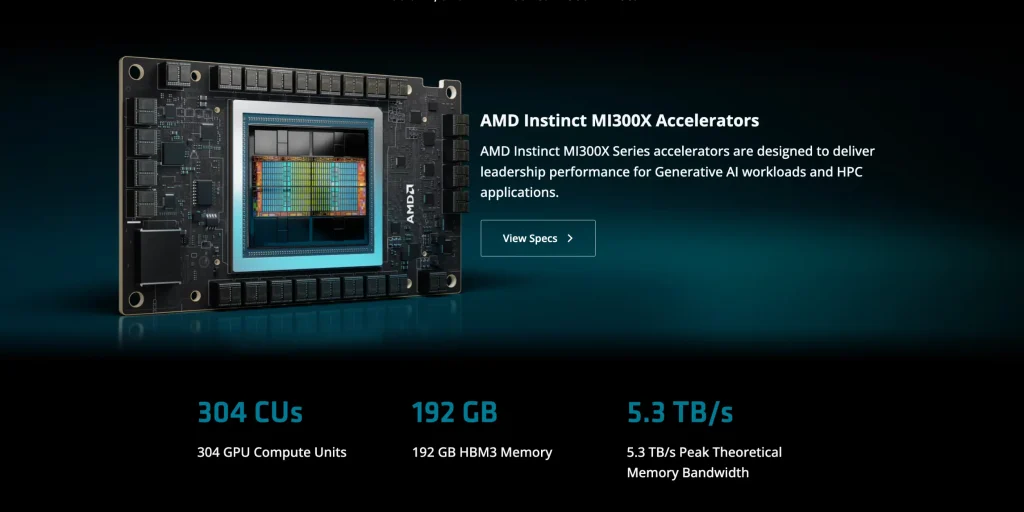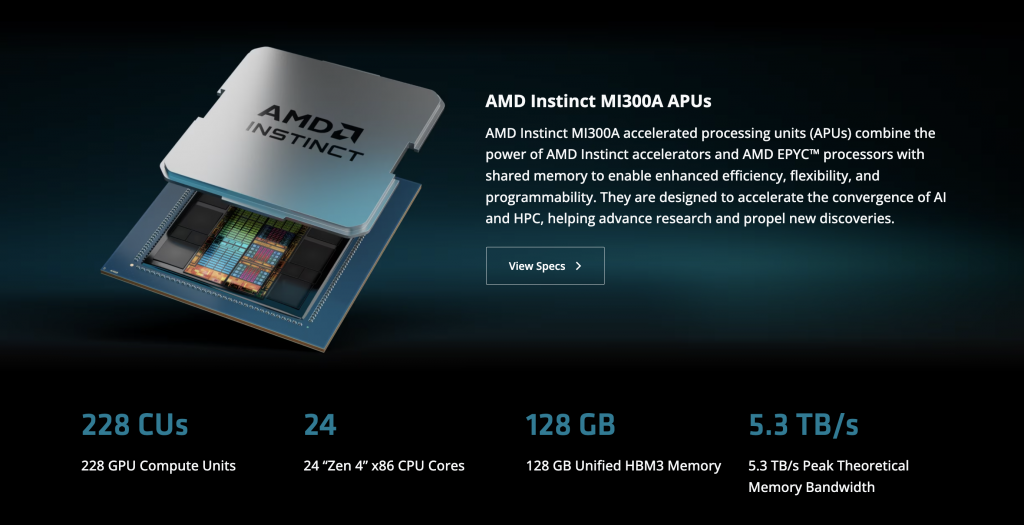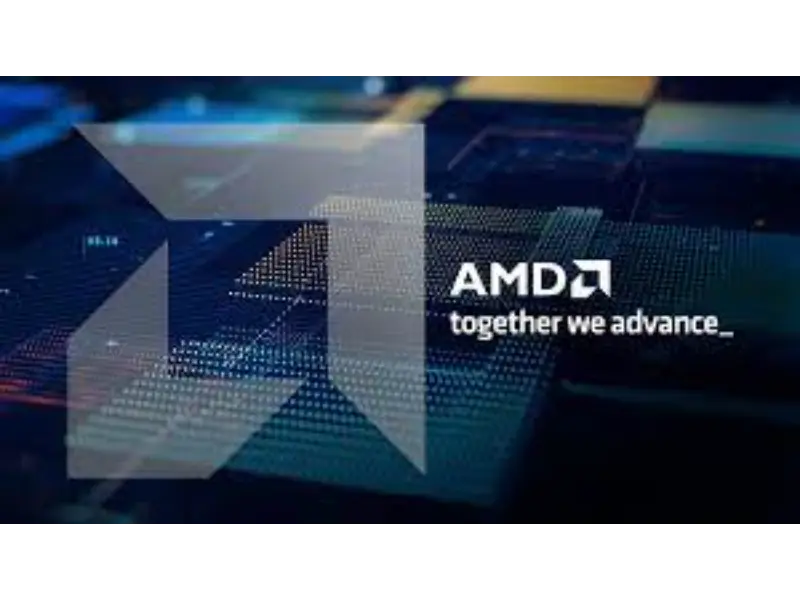- AMD’s MI300 series enters the AI market, directly challenging NVIDIA’s dominance.
- MI300X claims to be the world’s highest-performing accelerator, with 1.5 trillion transistors and 2.4 times the memory capacity of NVIDIA’s H100
AMD’s strategic move into the AI accelerator market
Advanced Micro Devices (AMD) has officially launched its MI300 series chips, comprising the Instinct MI300X accelerator and the Instinct M1300A Accelerated Processing Unit (APU). This move signifies AMD’s entrance into the highly competitive artificial intelligence (AI) accelerator market, setting the stage for direct competition with industry giant NVIDIA.
MI300X: A powerhouse in AI acceleration
Lisa Su, AMD’s CEO, hails the MI300X as the “highest-performing accelerator in the world,” featuring over 1.5 trillion transistors and a memory capacity 2.4 times that of NVIDIA’s H100 chip. The MI300X is positioned to go head-to-head with NVIDIA’s H100 in training large language models, while surpassing it in inference tasks. Impressively, in tandem with Meta Platforms’ Llama 2, a colossal 700 billion-parameter language model, the MI300X reportedly outperforms the H100 by 1.4 times.

Also read: AMD to acquire AI software startup to catchup with Nvidia
MI300A: Advancing computing power and efficiency
Complementing the MI300X, the MI300A promises enhanced computing power, accelerated model training, and a remarkable 30-fold improvement in energy efficiency. With 1.6 times the memory capacity of the H100 and unified memory, eliminating the need for data transfers between devices, the MI300A is slated to power the El Capitan supercomputer at Lawrence Livermore National Laboratory, expected to be one of the most powerful globally.

Ryzen 8040: Bringing AI to mobile devices
Simultaneously, AMD introduced the Ryzen 8040, the latest addition to its Ryzen processor family. Designed to bring native AI capabilities to mobile devices, the Ryzen 8040 boasts 1.6 times the AI processing performance of its predecessors and integrates a Neural Processing Unit (NPU). Beyond AI applications, the Ryzen 8040 promises a 65% improvement in video editing speed and a 77% boost in gaming speed compared to competing products.
Also read: NVIDIA sidesteps U.S. export rules, makes new chip series for booming China market
Industry adoption and collaborations
Manufacturers including Acer, ASUS, Dell, HP, Lenovo, and Razer are expected to release products integrated with the Ryzen 8040 chipset in the first quarter of 2024. AMD’s Ryzen AI software platform has already gained widespread adoption. Collaborations with Microsoft, Meta, and Oracle underscore the broad industry support for AMD’s latest offerings.
Lisa Su envisions these new products propelling AMD’s potential market size to $450 billion. With collaborations already in place, such as integrating the MI300X into Azure virtual machines and deployment in Meta and Oracle data centers, AMD is well-positioned for significant market impact. In a bold prediction, Su forecasts the AI chip industry’s scale to surpass $400 billion within the next four years, emphasizing the rapidly evolving expectations for AI hardware and AMD’s pivotal role in this dynamic sector.
AMD’s foray into the AI accelerator market with the MI300 series signals a substantial leap in performance and efficiency. The MI300X’s impressive transistor count and memory capacity position it as a serious contender against NVIDIA’s H100, especially in the demanding task of training large language models. The MI300A’s focus on enhanced computing power and energy efficiency aligns with the industry’s growing emphasis on sustainable AI solutions. This move not only intensifies the competition but also showcases AMD’s commitment to advancing AI hardware capabilities.

